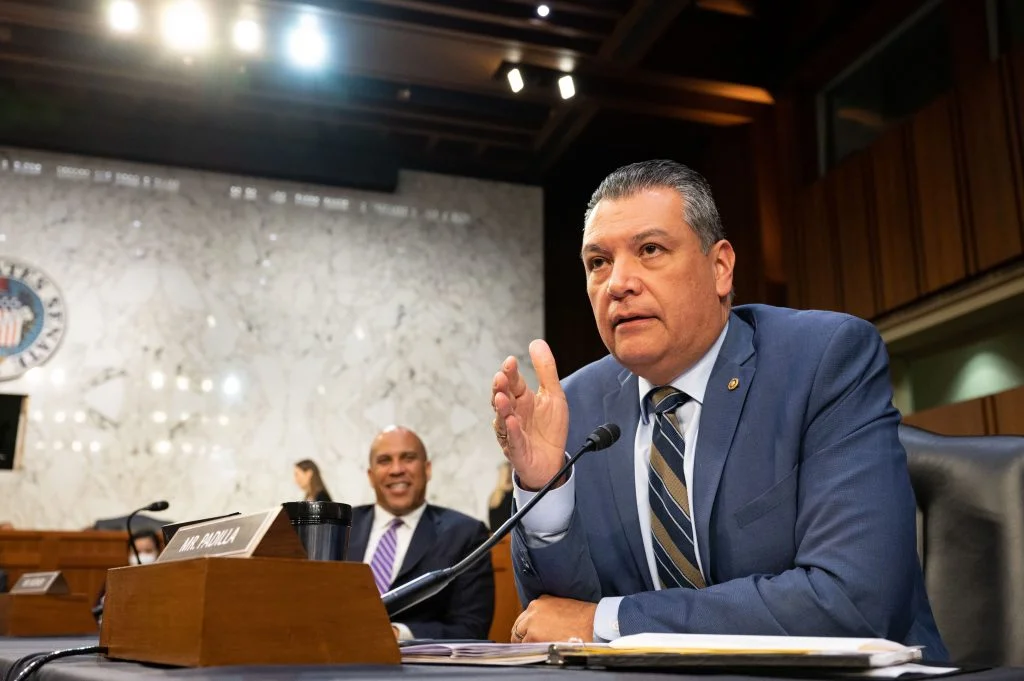Padilla Questions Judge Ketanji Brown Jackson on Voting Rights, Tribal Sovereignty During Supreme Court Confirmation Hearing
WASHINGTON, D.C. — Today, U.S. Senator Alex Padilla (D-Calif.), a member of the Senate Judiciary Committee, questioned Judge Ketanji Brown Jackson on the second day of her confirmation hearing to become the next Associate Justice of the United States Supreme Court.
Padilla questioned Judge Jackson on the role of the Supreme Court in upholding the fundamental right to vote and the federal government’s legal and moral trust responsibility to and relationship with sovereign Tribal governments. Padilla also focused on the importance of diversity among federal law clerks to improve the future diversity of our judicial branch.
Key Excerpts:
- PADILLA: I want to ask to you about our democracy and the judiciary’s role in it. I come to this issue not as a lawyer, but as a former election official. As California’s Chief Election Officer for six years before coming to the Senate, my objective was to ensure that our elections were safe and secure, and to help facilitate the participation of as many Californians as possible, as we are guided to do by the National Voter Registration Act. So, can you just share for a couple of minutes what you believe the role or responsibilities Supreme Court might be in protecting this fundamental right to vote and by extension, our democracy?
- JACKSON: Thank you, Senator. The right to vote is protected by our Constitution.
The Constitution makes clear that no one is to be discriminated against in terms of their exercise of voting. And the Congress has used its constitutional authority to enact many statutes that are aimed at voting protection. There are also, there are also laws that relate to ensuring that there is not only voting access, but ensuring that that isn’t fraud in terms of voting.
These concerns are embodied by various laws and provisions. And there are disputes at times over the concerns in the balances that that are being made across the country relating to the exercise of voting, and those disputes come to court and then eventually to the Supreme Court that interprets the laws that pertain to the to the fundamental right to vote, which, as you say the Supreme Court has acknowledged is a fundamental right.
- PADILLA: California is home to the largest Native American population in the country. In fact, more than one in ten Native Americans call California home. California is also home to 109 federally recognized tribes who have a nation-to-nation relationship with the United States. As a Senator from California, I believe that respect for tribal sovereignty is paramount. That’s why, after your nomination, I carefully considered your record on tribal issues…If you’re confirmed, though, you will no doubt eventually have to weigh in on major questions related to tribal sovereignty, treaty rights, tribal resource preservation, and the federal government’s trust responsibility. Now, I’m not going to ask you to comment on that case, specifically, or any case that may come before you, but as a general matter can just share what your understanding is of the federal government’s legal and moral trust responsibility and relationship with tribal governments?
- JACKSON: Yes, Senator. It is established in the law, the Supreme Court has established, that there is a special trust relationship between Indian tribes and the federal government.
Indian tribes are, as a general matter, considered to be sovereigns in the relationship is a sovereign-to-sovereign relationship, but it’s one in which the federal government has some responsibilities related to the Indian nation, and it’s very, very important care and trust responsibility that the federal government has in terms of making sure that the tribes are recognized in and cared for, in the context of our system.
- PADILLA: With such low clerkship selection rates, minority and women lawyers are denied an early credential that can help later in their legal career. Creating more avenues for diverse candidates to participate in clerkships is critical to diversifying the legal profession in the long run.
Video of Padilla’s full 30-minute questioning is available here and can be downloaded here.
###
Print
Share
Like
Tweet
